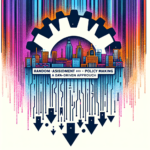
Resilience Revolution: How to Build a Stronger Mindset Through Tough Times
Introduction
In our fast-paced, ever-changing world, the ability to bounce back from adversity is not just a nice-to-have; it’s essential for thriving. This phenomenon—often referred to as resilience—can be the defining factor in determining who excels despite hardship. The Resilience Revolution: How to Build a Stronger Mindset Through Tough Times is more than a phrase; it’s a call to action. It’s about not merely enduring challenges but emerging from them more robust and more resourceful.
Whether you’re facing personal struggles, professional setbacks, or global crises, the question becomes: How can we cultivate resilience? Let’s dive deep into the foundations of a resilient mindset, explore real-world examples, and uncover strategies that will empower you during even the most trying times.
Understanding Resilience
What is Resilience?
Resilience is the ability to adapt positively in the face of adversity. It embodies our capacity to not only survive challenges but thrive because of them. According to psychologists, resilience isn’t just a personality trait but a continuum influenced by various factors such as environment, upbringing, and personal experiences.
Importance of a Resilient Mindset
Having a stronger mindset leads to improved stress management, enhanced emotional regulation, and a greater tendency to undertake challenges. Studies show that resilient individuals tend to have higher rates of success, better relationships, and greater fulfillment in their everyday lives.
Case Study: The Power of Resilience in Business
Consider the case of Airbnb. During the COVID-19 pandemic, the travel industry faced unprecedented challenges. Instead of succumbing to despair, Airbnb pivoted, focusing on online experiences and local stays. Their ability to adapt and innovate in the face of existential threat epitomizes the Resilience Revolution: How to Build a Stronger Mindset Through Tough Times.
The Science Behind Resilience
Scientific studies have shown that resilience activates various neural pathways that enhance cognitive flexibility and emotional regulation. Neuroscientists have identified processes such as neuroplasticity, allowing the brain to adapt and form new connections in response to experiences. With consistent effort, anyone can cultivate a more resilient brain.
| Factor | Effect on Resilience |
|---|---|
| Support Systems | Provide emotional stability |
| Self-Regulation | Enhances emotional control |
| Growth Mindset | Encourages personal development |
| Optimism | Fosters hope and motivation |
Building Resilience: Strategies for Success
1. Cultivating a Growth Mindset
The concept of a growth mindset—coined by psychologist Carol Dweck—emphasizes the belief that abilities and intelligence can be developed through hard work and perseverance. When facing difficulties, those with a growth mindset view challenges as opportunities for learning rather than insurmountable obstacles.
2. Establishing Strong Connections
Building resilient relationships is crucial. A strong support system can buffer you against stress and foster resilience. Engaging in social groups, community events, or mentorship programs can create vital support networks.
3. Practicing Mindfulness
Mindfulness practices, such as meditation and deep-breathing exercises, can improve emotional regulation, reduce anxiety, and promote overall well-being. Regularly engaging in mindfulness can facilitate a resilient mindset.
Case Study: Mindfulness at Google
Google’s “Search Inside Yourself” program teaches employees mindfulness practices. By fostering self-awareness and emotional intelligence, Google has reported higher employee satisfaction and resilience during stressful periods.
4. Embracing Failure
Failure is an unavoidable part of growth. Those who embrace and learn from failures develop a stronger foundation of resilience. Instead of viewing setbacks as personal shortcomings, see them as valuable lessons on your journey.
5. Setting Realistic Goals
Setting achievable goals allows you to create a roadmap amid challenging times. Break larger goals into smaller, manageable tasks to maintain motivation and momentum.
The Role of Self-Care in Resilience
Physical Health
Your physical health greatly affects your overall resilience. Regular exercise, a balanced diet, and adequate sleep play critical roles in maintaining mental well-being.
Emotional Self-Care
It’s crucial to find methods that help process emotions, whether through journaling, talking with friends, or seeking professional help. Emotional self-care promotes resilience by fostering a safe space to express feelings and concerns.
| Self-Care Strategy | Benefits for Resilience |
|---|---|
| Regular Exercise | Boosts mood, reduces anxiety |
| Adequate Sleep | Improves cognitive function |
| Healthy Eating | Fuels the body and mind |
| Time for Hobbies | Enhances happiness and stress relief |
The Community Connection: Collective Resilience
The Impact of Community
In times of crisis, communities can rally together, creating collective resilience. When individuals come together to support one another, the impact is amplified. This collective mindset can be seen in various social movements, local initiatives, and global efforts during crises, such as natural disasters or pandemics.
Case Study: Community Resilience during Hurricane Katrina
In the aftermath of Hurricane Katrina, communities banded together to provide aid, rebuild homes, and support one another. The shared experiences created a strong sense of belonging and resilience, illustrating the power of community during tough times.
Building Resilient Communities
Investing in community resources, fostering inclusivity, and promoting social engagement creates a resilient environment for everyone. Workshops, community meetups, and local initiatives can cultivate a culture of support and understanding.
Moving Beyond Resilience: Thriving Amidst Adversity
The Resilience Revolution: How to Build a Stronger Mindset Through Tough Times
As we navigate our personal and collective challenges, the Resilience Revolution: How to Build a Stronger Mindset Through Tough Times takes on a new dimension. Resilience is about transformation; it empowers you not only to cope but to thrive. This revolution encourages us to redefine our relationship with stress, change, and adversity.
Thriving Versus Surviving
The goal isn’t merely to survive tough times but to thrive. Embracing challenges as opportunities for growth can lead to enhanced creativity, innovation, and overall well-being.
Conclusion: Your Path to Resilience
Emerging from adversity stronger is within reach for everyone willing to embrace the journey. The Resilience Revolution: How to Build a Stronger Mindset Through Tough Times offers a roadmap filled with strategies, stories, and insights that can change how you approach life’s challenges.
As you cultivate resilience, remember that every challenge faced is an opportunity for growth. Focus on what you can control, seek support, and take actionable steps toward your goals. Resilience is not the absence of hardship but the presence of growth in the face of it.
FAQs
1. What is resilience, and why is it important?
Resilience is the ability to adapt positively to adversity. It’s essential because it enables individuals to thrive through challenges, enhancing emotional regulation and stress management.
2. How can I develop a resilient mindset?
You can develop a resilient mindset by cultivating a growth mindset, establishing strong connections, practicing mindfulness, embracing failure, and setting realistic goals.
3. What role does community play in resilience?
A supportive community can provide emotional stability and shared experiences, which enhance collective resilience during challenging times.
4. How does self-care contribute to resilience?
Self-care, including physical health, emotional support, and personal hobbies, contributes to resilience by promoting well-being and enhancing your ability to manage stress.
5. Can resilience be learned?
Yes! Resilience can be cultivated through practices and mindsets that encourage growth, adaptation, and emotional management. With consistent effort, anyone can develop greater resilience.
Summary
The Resilience Revolution: How to Build a Stronger Mindset Through Tough Times is a necessary journey for anyone looking to thrive amidst adversity. This in-depth exploration equips readers with the insights and strategies they need to navigate life’s challenges effectively. Now is the time to embark on your journey toward resilience and transform your mindset!













